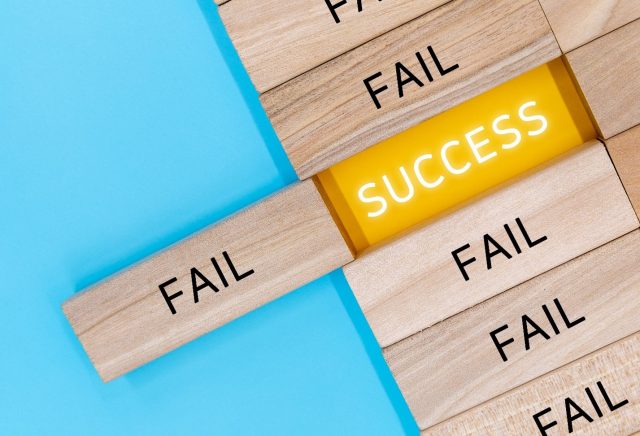Failure is an inevitable part of the entrepreneurial journey. Every successful entrepreneur has faced moments of defeat, miscalculated decisions, and unforeseen challenges. What separates those who succeed from those who give up is not the absence of failure but the ability to transform setbacks into valuable lessons. Chad Sehlke of Iowa emphasizes that adopting a growth mindset—a belief that abilities and intelligence can be developed through dedication and hard work—enables entrepreneurs to navigate failure, learn from their experiences, and ultimately thrive.
Why Failure Is Essential in Entrepreneurship
Entrepreneurship is inherently risky. The process of creating something new often involves venturing into uncharted territories where the outcomes are uncertain. Many of the most iconic success stories—Apple, SpaceX, and Airbnb—are built on a foundation of failed attempts and early missteps.
Failure, in this sense, is not the opposite of success but a crucial step toward achieving it. Chad Sehlke of Iowa explains that it acts as a feedback mechanism, offering insights into what works, what doesn’t, and where opportunities for improvement lie. Entrepreneurs who embrace failure as a natural part of innovation are better equipped to experiment, iterate, and refine their ideas.
The Growth Mindset: A Key to Learning from Failure
At the heart of learning from failure is the growth mindset, a term popularized by psychologist Carol Dweck. Unlike a fixed mindset, which views abilities as static and unchangeable, a growth mindset sees challenges and failures as opportunities to grow and improve.
Entrepreneurs with a growth mindset:
- See failure as a learning opportunity: Instead of being paralyzed by setbacks, they analyze what went wrong and identify actionable steps to move forward.
- Adapt quickly to change: Business environments are dynamic, and flexibility is crucial. A growth mindset encourages adaptability and resilience in the face of shifting circumstances.
- Foster creativity and innovation: Fear of failure stifles creativity, while a willingness to embrace mistakes fosters out-of-the-box thinking.
Turning Failures into Lessons
To turn failure into a stepping stone for success, entrepreneurs need a structured approach to reflection and learning. Chad Sehlke of Iowa shares some key strategies:
- Embrace Reflection
After a setback, take time to reflect on what happened. Ask questions like:- What were the goals, and why weren’t they achieved?
- What external and internal factors contributed to the outcome?
- What could have been done differently?
Journaling or conducting a post-mortem analysis can help uncover patterns and insights that may not be immediately obvious.
- Seek Feedback
Feedback from mentors, team members, and customers is invaluable. Often, others can spot blind spots or offer perspectives that entrepreneurs might overlook. Create an open environment where constructive criticism is welcomed and used to refine ideas and strategies. - Reframe Failure
Reframing involves changing how you perceive failure. Instead of viewing it as a definitive end, see it as a temporary setback on the path to success. For instance, if a product launch doesn’t go as planned, consider it an experiment that yielded valuable data about market preferences. - Build Resilience
Resilience is the ability to bounce back from adversity. It involves maintaining a long-term perspective, staying motivated despite challenges, and using failures as fuel to persevere. Developing habits such as regular exercise, mindfulness, and networking with supportive peers can bolster resilience. - Take Calculated Risks
Learning from failure doesn’t mean avoiding risks altogether. Instead, entrepreneurs should aim to take calculated risks—those informed by research, analysis, and past experiences. Balancing risk-taking with prudence reduces the likelihood of repeated failures.
Fostering a Growth Mindset in Your Organization
Entrepreneurs can extend the benefits of a growth mindset to their teams, creating a culture where learning from failure is encouraged. Chad Sehlke of Iowa shows how:
- Celebrate Effort, Not Just Success: Recognize employees who take initiative, even if the results aren’t perfect. This encourages experimentation and innovation.
- Encourage Open Communication: Create an environment where team members feel safe discussing failures and lessons learned without fear of judgment.
- Provide Learning Opportunities: Invest in training, workshops, and mentorship programs that help employees develop new skills and perspectives.
Failure is not a roadblock but a stepping stone on the entrepreneurial journey. Chad Sehlke of Iowa emphasizes that by adopting a growth mindset, entrepreneurs can transform setbacks into powerful lessons that drive progress and innovation. This perspective not only fosters personal and professional growth but also paves the way for long-term success. Remember, it’s not about avoiding failure—it’s about how you respond to it. With resilience, reflection, and a willingness to learn, any entrepreneur can turn failures into valuable assets on the path to achievement.








